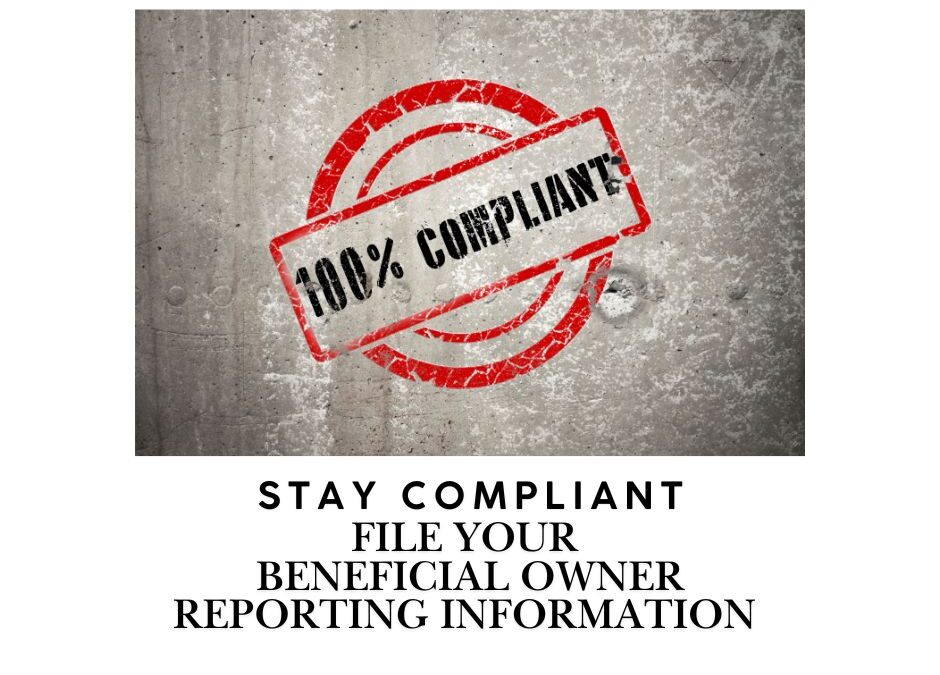Understanding Beneficial Ownership Information: Requirements and Importance
As businesses navigate the evolving landscape of compliance, Beneficial Ownership Information (BOI) has emerged for corporate transparency. This article explores what BOI is, why it’s required, and its critical role in promoting accountability and protecting the financial ecosystem.
What is Beneficial Ownership Information?
Beneficial Ownership Information refers to the disclosure of individuals who ultimately own or control a business entity, regardless of the number of intermediary layers. These individuals are referred to as beneficial owners and generally:
- Own or control 25% or more of the entity’s equity or voting rights.
- Have substantial influence over decision-making.
Why Are BOI Requirements Needed?
1. Combatting Financial Crimes
BOI requirements are pivotal in the fight against money laundering, tax evasion, and terrorism financing. By identifying who truly benefits from a business entity, regulators can uncover hidden activities and prevent illicit financial flows.
2. Enhancing Transparency
Transparency fosters trust in the business environment. BOI disclosure ensures businesses operate in a manner aligned with ethical and legal standards, which builds confidence among stakeholders, including investors, customers, and regulators.
3. Strengthening Compliance
With BOI requirements, organizations are better equipped to comply with global standards such as the Financial Action Task Force (FATF) recommendations. Non-compliance can lead to penalties, reputational damage, and limited access to financial services.
Who is Required to Report BOI?
In the United States, the Corporate Transparency Act (CTA) requires certain entities to report BOI to the Financial Crimes Enforcement Network (FinCEN). Entities subject to reporting include:
- Corporations
- Limited Liability Companies (LLCs)
- Other similar entities formed under state law or foreign entities registered to do business in the U.S.
Exemptions apply to entities such as large operating companies, banks, and publicly traded corporations, which are already subject to stringent reporting requirements.
What Information Must Be Reported?
For each beneficial owner, businesses must report:
- Full legal name
- Date of birth
- Current residential or business address
- A unique identifying number from an acceptable identification document (e.g., passport or driver’s license). You will need a picture of one acceptable identification document to upload, so be prepared to either take a picture of that document or scan it to upload to the site.
How Does BOI Impact Businesses?
1. New Compliance Obligations
Businesses must establish systems to collect, store, and update BOI. Failing to meet BOI requirements can result in fines or criminal penalties.
2. Privacy Concerns
While BOI ensures accountability, businesses must handle this sensitive information carefully to safeguard privacy and prevent unauthorized access.
Preparing Your Business for BOI Compliance
As BOI regulations become a standard requirement globally, here’s how businesses can prepare:
- Identify Beneficial Owners: Map out your company’s ownership structure to pinpoint individuals qualifying as beneficial owners.
- Maintain Accurate Records: Ensure the information is up to date and securely stored.
- Leverage Legal Expertise: Work with compliance professionals to navigate reporting requirements and avoid penalties
Go to https://fincen.gov/boi
What you will need to file:
1. Reporting company name
2. Tax Identification number (EIN or SSN)
3. Country/Jurisdiction
4. Address
5. State of Formation
6. Legal Name, Date of Birth, Address of Company Applicant
7. Identifying Document (passport, driver’s license, etc.)
Conclusion
Beneficial Ownership Information requirements are not just a regulatory obligation but a step toward a more transparent and secure business environment. By embracing these rules, businesses can protect themselves from risks and contribute to the global effort to combat financial crimes.
For assistance with BOI compliance or other corporate legal needs, Accelerate IP is here to help. Contact us today to ensure your business is prepared for the future of transparency.


